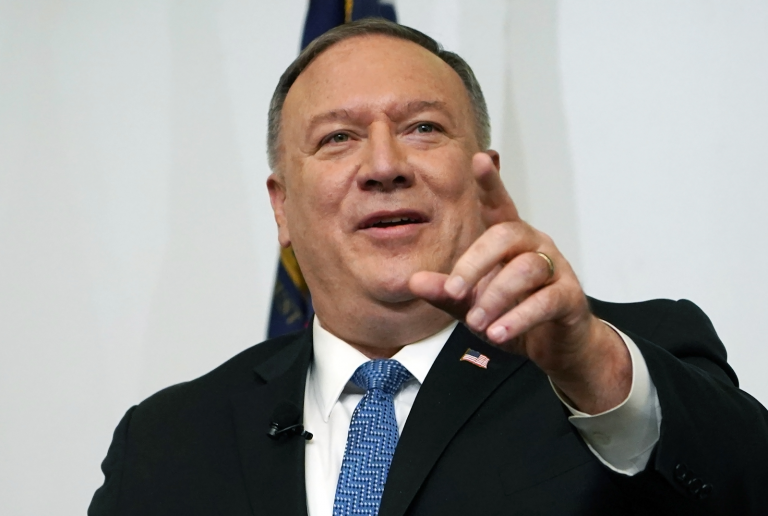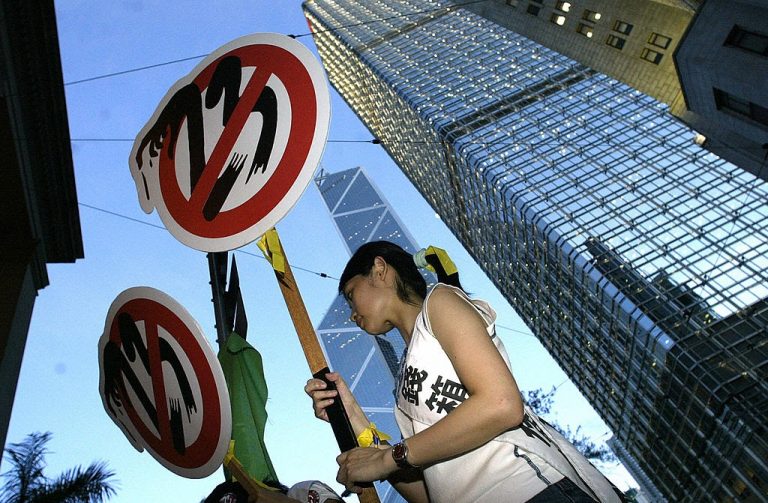On Monday, Dec. 7, 14 more Chinese officials were sanctioned for taking part in the Chinese government’s draconian crackdown on Hong Kong pro-democracy activists.
Sanctions include travel bans, a freeze of foreign assets that sanctioned officials may have abroad, and a ban on doing business with U.S. companies.
The sanctioned officials are part of the National People’s Congress (NPC), one of the highest decision-making bodies in China, which is often referred to as the country’s “rubber-stamp legislature,” meaning that it rarely disagrees or contemplates orders from higher-ups.
On June 30, new laws emerged in Hong Kong in an attempt to disempower pro-democracy advocates and protestors. According to The New York Times, the laws were conceived in secret and were passed without any serious input from Hong Kong.
Under the new laws, convicted Hongkongers could face up to a life sentence for damaging government property. Also, the August 2019 occupation of the Hong Kong International Airport that some pro-democracy activists took part in, which was by and large non-violent, could be considered “sabotaging transport” and deemed a terrorist attack, also punishable with a life sentence.

Success
You are now signed up for our newsletter
Success
Check your email to complete sign up
According to The New York Times: “The four major offenses in the law — separatism, subversion, terrorism, and collusion with foreign countries — are ambiguously worded and give the authorities extensive power to target activists who criticize the party, activists say.”
As Chinese Government officials continue to extend their power in Hong Kong, foreign powers — especially the United States — are blamed for causing pro-democracy activism. The Chinese Communist regime is hoping that the laws they have enacted will deter protests and activism in Hong Kong. Some of the new laws go as far as granting the ability to prosecute foreigners in Hong Kong who are found to be openly supporting Hong Kong independence.
Zhang Xiaoming, a deputy director of the Central Chinese Government office for Hong Kong said, “This law is to punish a tiny number of criminals who seriously endanger national security — a sharp sword hanging high over their heads that will serve as a deterrent against external forces meddling in Hong Kong.”
Chinese officials and Carrie Lam were sanctioned by Trump
In August, the Trump administration hit Hong Kong Chief Executive Carrie Lam and 11 other Chinese officials with the first round of sanctions.
According to a report by The Epoch Times, Lam felt it was an “honor” to be hit with sanctions and bragged about having “piles of cash” at home. According to a Hong Kong government report, Lam earns about $672,000 a year and currently does not have a bank account, due to sanctions.
These sanctions extend Trump’s legacy of being tough on Chinese corruption, which may be coming to an end under a Biden administration. According to Bloomberg: “Biden has said he expects to keep up pressure on Beijing over Hong Kong, but he’s unlikely to resort to unilateral sanctions to the extent that Trump has.”
Follow us on Twitter or subscribe to our email list













